6 Japanese Habits That Keep You Slim for Life
Riya Kumari | Jun 27, 2025, 13:16 IST
( Image credit : Timeslife )
I used to think the secret to staying slim was a toxic combination of self-loathing and green juice. You know, punish your body until it fits into society’s absurd definition of “cute” and then reward it with...more kale. But then, I stumbled into the rabbit hole of Japanese lifestyle habits. And suddenly, there was light. And rice. So much rice. But no bloating. No guilt. Just grace, balance, and the kind of self-control that doesn’t come with an internal monologue screaming, “PUT DOWN THE DAMN BAGEL.”
In a world that shouts louder and faster with every passing day—counting calories, chasing body trends, scrolling through quick fixes—Japan whispers something timeless. It says: slow down. It says: less is enough. It says: listen to yourself more than the noise around you. This isn’t an article about weight loss. Not really. It’s about remembering how to live with balance. About turning food back into nourishment, movement back into instinct, and our bodies back into friends—not enemies to be fought or projects to be fixed. Because what we call “fitness” often misses the point: being well isn’t about looking a certain way. It’s about living in a way that makes you feel light—not just in body, but in mind. Here’s what Japan has quietly known for generations.
1. Stop Eating Before You’re Full, So You Still Feel Alive After
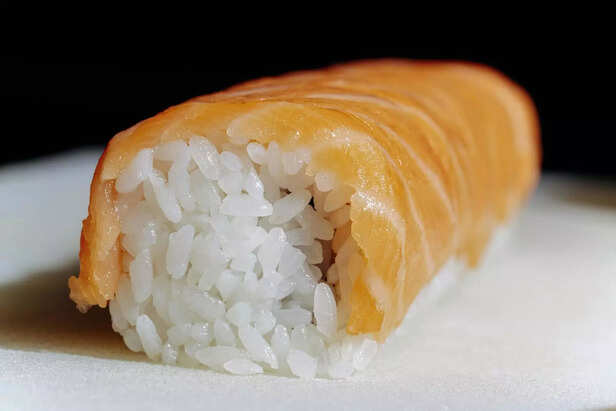
There’s a saying in Okinawa: “Hara Hachi Bu.” It means eat till you're 80% full. Not stuffed. Not satisfied to the point of sleep. Just… enough. It teaches restraint without punishment. Discipline without fear. It reminds us that fullness is not just physical. Overeating numbs us. Eating just enough sharpens us.
And that line—between enough and too much—is where self-respect begins.
2. Small Portions, Big Awareness
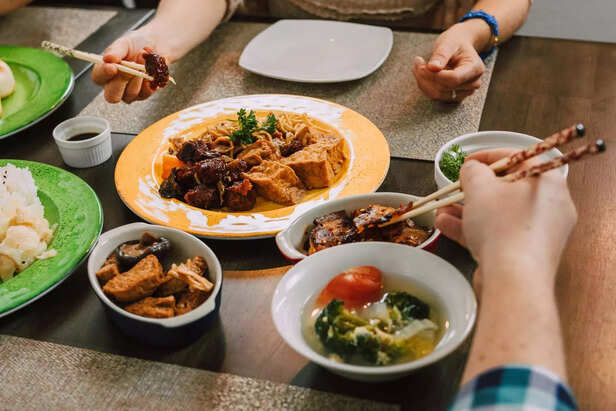
In Japanese culture, meals are beautifully small. Not because they fear food. Because they respect it. Each dish is intentional. Each bite, considered. When you eat less, but with presence, your body learns to listen. Hunger becomes something you understand—not something you fear or fight. And you realize: fullness isn’t the goal. Feeling nourished is.
It’s not about less food. It’s about more awareness.
3. Walking Isn’t Exercise. It’s Life
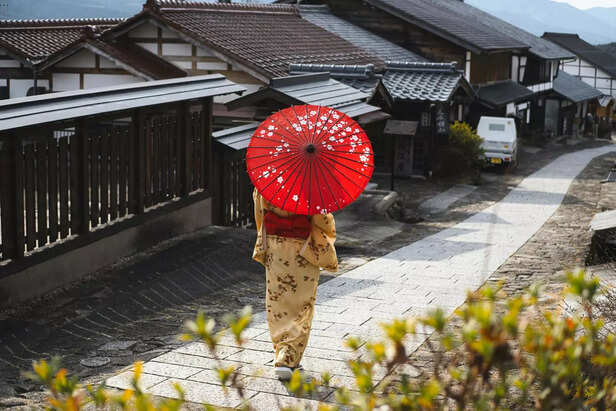
We treat walking like punishment. A chore. Something you log in an app and reward with dessert. In Japan, walking is natural. It’s how you get to the store. The station. The sea. Movement is built into life, not carved out as a separate obligation. That’s the wisdom: don’t “work out” to make up for sitting. Design a life that moves.
You don’t need a gym. You need a life that flows.
4. Meals Are Sacred. Not Just Fuel
Eating in Japan is quiet, intentional, almost meditative. There’s ritual. Rhythm. Presence. It’s not something squeezed between meetings or mindlessly done in front of a screen. And maybe that’s why it works. Because when you eat with awareness, your body knows when to stop. And you, somewhere deep down, begin to heal your relationship with food.
Don’t just feed yourself. Care for yourself.
5. Carbs Are Not the Enemy. Shame Is
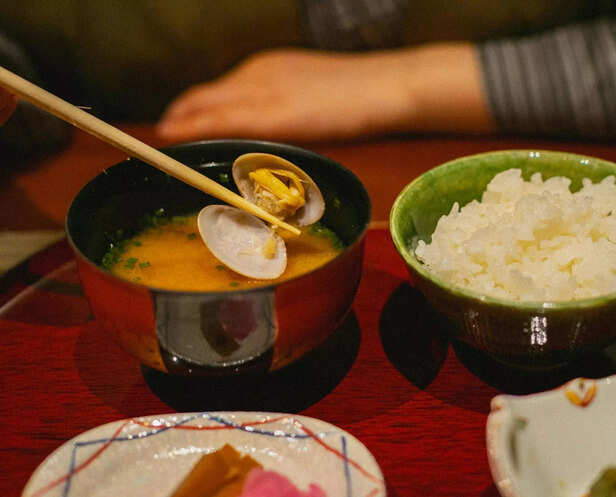
Japan eats rice. Daily. Sometimes three times a day. But they don’t binge on it. They don’t starve themselves after. They don’t label food as “good” or “bad.” Carbs aren't feared—they’re honored. Balanced with vegetables. Eaten in calm. Never used as therapy. This is the lesson: food isn’t morality. Guilt is not nutrition.
And real balance starts when you stop making food the villain in a story about your worth.
6. Snacking Is Rare. But So Is Emotional Avoidance
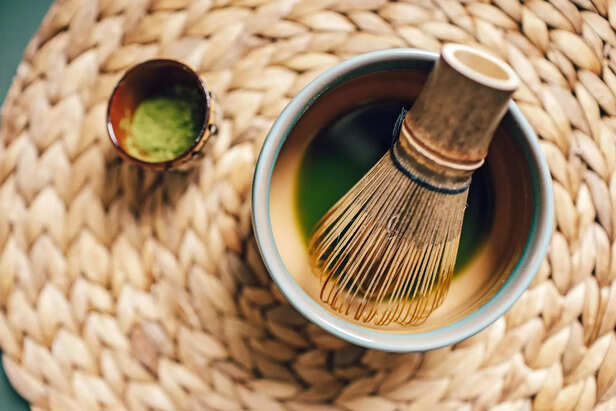
In the West, we snack to fill time. Or silence. Or loneliness. In Japan, snacking is minimal—because life isn’t rushed, and emotions aren’t buried under chips. They eat real meals. And between them, they feel. Breathe. Move. Reflect. This isn’t about skipping snacks. It’s about asking: Why am I reaching for this?
And if the answer has nothing to do with hunger, maybe it’s time to give yourself something else—like rest, or honesty, or even grief.
IN CLOSING:
These six habits are not tricks. They’re not shortcuts to a thinner body or a trending lifestyle. They are quiet, grounded ways of living that restore dignity to eating—and wisdom to wellness. Because when we stop treating our bodies like battlegrounds and start treating them like homes, something shifts. We stop chasing health like it’s a race. And we start living it like it’s who we are.
So maybe this isn't a story about staying slim. Maybe it's a story about remembering who you are—before the world told you to shrink yourself to be enough. And maybe, just maybe, that’s the real secret Japan has been keeping.
1. Stop Eating Before You’re Full, So You Still Feel Alive After

Sushi
( Image credit : Pexels )
There’s a saying in Okinawa: “Hara Hachi Bu.” It means eat till you're 80% full. Not stuffed. Not satisfied to the point of sleep. Just… enough. It teaches restraint without punishment. Discipline without fear. It reminds us that fullness is not just physical. Overeating numbs us. Eating just enough sharpens us.
And that line—between enough and too much—is where self-respect begins.
2. Small Portions, Big Awareness

Japanese food
( Image credit : Pexels )
In Japanese culture, meals are beautifully small. Not because they fear food. Because they respect it. Each dish is intentional. Each bite, considered. When you eat less, but with presence, your body learns to listen. Hunger becomes something you understand—not something you fear or fight. And you realize: fullness isn’t the goal. Feeling nourished is.
It’s not about less food. It’s about more awareness.
3. Walking Isn’t Exercise. It’s Life

Walk
( Image credit : Pexels )
We treat walking like punishment. A chore. Something you log in an app and reward with dessert. In Japan, walking is natural. It’s how you get to the store. The station. The sea. Movement is built into life, not carved out as a separate obligation. That’s the wisdom: don’t “work out” to make up for sitting. Design a life that moves.
You don’t need a gym. You need a life that flows.
4. Meals Are Sacred. Not Just Fuel
Don’t just feed yourself. Care for yourself.
5. Carbs Are Not the Enemy. Shame Is

Rice
( Image credit : Pexels )
Japan eats rice. Daily. Sometimes three times a day. But they don’t binge on it. They don’t starve themselves after. They don’t label food as “good” or “bad.” Carbs aren't feared—they’re honored. Balanced with vegetables. Eaten in calm. Never used as therapy. This is the lesson: food isn’t morality. Guilt is not nutrition.
And real balance starts when you stop making food the villain in a story about your worth.
6. Snacking Is Rare. But So Is Emotional Avoidance

Matcha
( Image credit : Pexels )
In the West, we snack to fill time. Or silence. Or loneliness. In Japan, snacking is minimal—because life isn’t rushed, and emotions aren’t buried under chips. They eat real meals. And between them, they feel. Breathe. Move. Reflect. This isn’t about skipping snacks. It’s about asking: Why am I reaching for this?
And if the answer has nothing to do with hunger, maybe it’s time to give yourself something else—like rest, or honesty, or even grief.
IN CLOSING:
So maybe this isn't a story about staying slim. Maybe it's a story about remembering who you are—before the world told you to shrink yourself to be enough. And maybe, just maybe, that’s the real secret Japan has been keeping.
